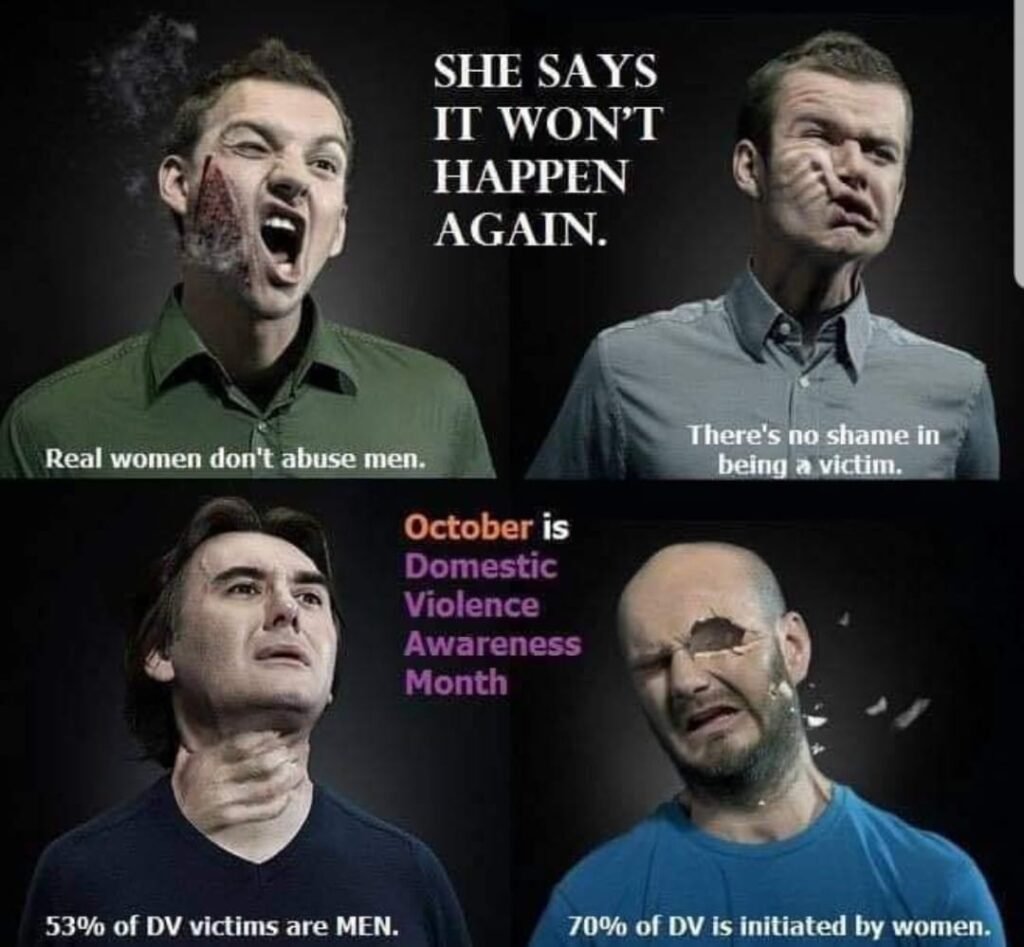When discussions about abuse arise, the prevailing narrative often focuses on men as perpetrators and women as victims. However, it is essential to acknowledge that abuse can occur in various forms and affect people of all genders. In this article, we will shed light on a less-discussed issue—women abusing men. By exploring this often-overlooked aspect of interpersonal violence, we aim to challenge stereotypes, encourage dialogue, and advocate for support systems that address the needs of all survivors.
Recognizing the Reality:
It is important to acknowledge that men can experience abuse at the hands of women, including physical, emotional, and sexual abuse. Despite societal expectations and gender norms, men can be vulnerable to manipulation, control, and violence within intimate relationships. However, due to cultural biases and stereotypes surrounding masculinity, men who experience abuse may face unique challenges when seeking help or sharing their experiences, such as societal disbelief, minimized experiences, and limited resources.
Forms of Abuse:
Abuse inflicted by women upon men may manifest in various ways. Physical abuse can involve hitting, slapping, or other forms of physical violence. Emotional abuse may include constant criticism, belittlement, humiliation, or isolating the victim from friends and family. Sexual abuse can range from unwanted advances to non-consensual acts. Just as it is essential to recognize and address abuse against women, it is equally crucial to acknowledge and address abuse against men.
Barriers to Seeking Help:
Men facing abuse may encounter significant barriers when seeking help or disclosing their experiences. Societal expectations surrounding masculinity often discourage men from expressing vulnerability or admitting to being victimized. Fear of ridicule or disbelief can prevent men from seeking support, leaving them isolated and without the necessary resources to escape abusive situations. Service providers and support systems must be attuned to these challenges, offering inclusive and non-judgmental assistance to male survivors.
Changing Perceptions and Raising Awareness:
To effectively address the issue of women abusing men, we must challenge societal perceptions and stereotypes. By promoting open discussions, media representation, and education, we can debunk myths surrounding gender roles and encourage empathy for all survivors. It is vital to foster an environment where men feel safe to come forward, seek help, and receive the support they need to heal from their experiences.
Support Systems and Resources:
Creating comprehensive support systems for male survivors of abuse is crucial, however, non-existent. Organizations like VAWA and the overwhelming majority of “safe havens” cater to exclusively women. To truly be a genderless society, we need to include establishing helplines, counseling services, and safe spaces that specifically address the unique needs of men. Service providers, law enforcement agencies, and healthcare professionals should receive training to identify and respond sensitively to cases involving male victims of abuse. By ensuring that support systems are inclusive, accessible, and stigma-free, we can empower all survivors to seek assistance and rebuild their lives.
In the years of doing basic research on this overlooked problem, media is primarily focused on women as the victims, however, based on research the violence is nowhere near as disparate as society would have people think. For example, this graphic (CDC links can be found here) shows that men were the ones being abused more. Also noted is the definitions of what constitutes “violence”.

On the topic of “questionable” data analysis, this short podcast shows that the domestic violence presented was “selective”. Original “part one” of the video.
Since the media and society overwhelming state that “only” men commit violence, the pissed off parent made this page to show “the other side”.
Conclusion:
Abuse knows no gender boundaries, and it is imperative to acknowledge and address the issue of women abusing men. By breaking the silence surrounding this topic, we can challenge societal stereotypes, promote empathy, and work towards a more inclusive understanding of abuse. It is crucial that society provides support systems that cater to the unique needs of male survivors, enabling them to heal, seek justice, and reclaim their lives. Together, we can create a society that supports all survivors, regardless of their gender.






